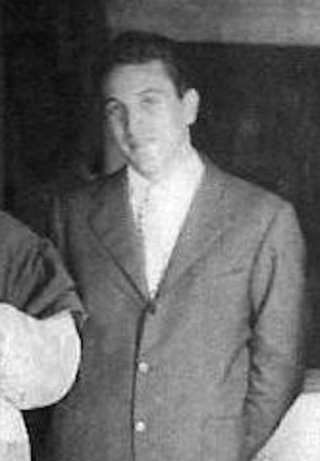
Antonio Margheriti, also known under the pseudonyms Anthony M. Dawson and Antony Daisies, was an Italian filmmaker. Margheriti worked in many different genres in the Italian film industry, and was known for his sometimes derivative but often stylish and entertaining science fiction, sword and sandal, horror/giallo, Eurospy, Spaghetti Western, Vietnam War and action movies that were released to a wide international audience. He died in 2002.

Luigi Ballerini is an Italian writer, poet, and translator.
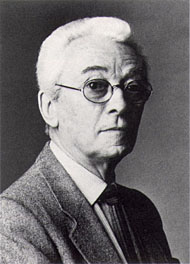
Bruno Munari was "one of the greatest actors of 20th-century art, design and graphics". He was an Italian artist, designer, and inventor who contributed fundamentals to many fields of visual arts in modernism, futurism, and concrete art, and in non-visual arts with his research on games, didactic method, movement, tactile learning, kinesthetic learning, and creativity. On the utility of art, Munari once said, "Art shall not be separated from life: things that are good to look at, and bad to be used, should not exist".

Lucio Piccolo di Calanovella was an Italian poet and esotericist.

Stefano Lelio Beniamino Accorsi is an Italian actor.

Carlo Ludovico Bragaglia was an Italian film director whose career spanned from the 1930s to the mid-1960s. He mainly directed adventure pictures and popular comedies, including some starring Totò. His 1942 film Non ti pago! was shown as part of a retrospective on Italian comedy at the 67th Venice International Film Festival.

Assunta Spina is a 1948 Italian drama film directed by Mario Mattoli and starring Anna Magnani, Antonio Centa and Giacomo Furia. It was adapted from Salvatore Di Giacomo's 1909 play of the same title. It was released in the United States with the title Scarred. It was shot at the Farnesina Studios in Rome and on location in Naples. The film's sets were designed by the art director Piero Filippone. Distributed by Titanus it earned around 70 million lira at the domestic box office.

Giovanni Raboni was an Italian poet, translator and literary critic.
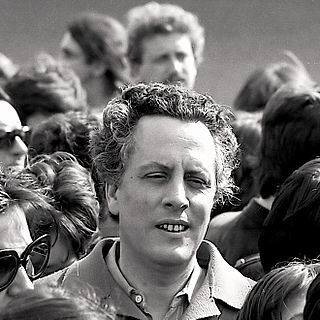
Antonio Porta was an Italian author and poet and one of the founders of the Italian literary movement Gruppo 63.

Thaïs is a 1917 Italian silent film directed by Anton Giulio Bragaglia. The movie is the sole surviving Italian Futurist film, and currently kept at the Cinémathèque Française. It is not based on the novel of the same name by Anatole France.

Adriana Benetti was an Italian actress.

The Sword and the Cross is a 1958 Italian religious drama film directed by Carlo Ludovico Bragaglia and starring Yvonne De Carlo as Mary Magdalene. Shot in English and later dubbed in Italian, the film was released in the United States in 1960 as Mary Magdalene.
Maurizio Calvesi is an Italian cinematographer.

Achille Beltrame, was an Italian painter, illustrator and commercial artist. His name is indissolubly tied to the weekly La Domenica del Corriere, the covers of which he drew from the beginning weeks of the twentieth century to the closing weeks of World War II. Beltrame was the official cover-illustrator of La Domenica del Corriere until 1945. He was succeeded in this position by his disciple Walter Molino.
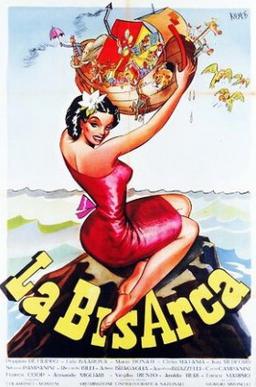
The Transporter is a 1950 Italian comedy science fiction film directed by Giorgio Simonelli and starring Peppino De Filippo, Silvana Pampanini, Lída Baarová and Aroldo Tieri. It is based on a radio program with the same name.
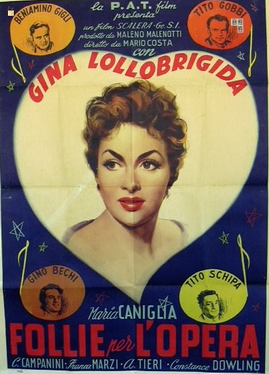
Mad About Opera is a 1948 Italian musical comedy film directed by Mario Costa and starring Gino Bechi, Gina Lollobrigida, and Carlo Campanini. It was shot at the Scalera Studios in Rome. The film's sets were designed by the art director Piero Filippone. Footage from the film was late re-incorporated in the 1950 British film Soho Conspiracy.

Vanna Vanni was an Italian film actress. She was in thirty-one films between 1930 and 1943.
Giovanni Orelli was a Swiss poet and writer who worked in Italian and the Ticinese dialect. His cousin Giorgio Orelli was a poet and literary critic.
Carlo Belli was an Italian art critic, theorist, and writer.
Lorenza Trucchi is an Italian journalist and art critic. Trucchi was born on Monaco. She is the daughter of Olga Cassini and Lorenzo Trucchi, a well-known surgeon who practiced his profession in the Principality.
















